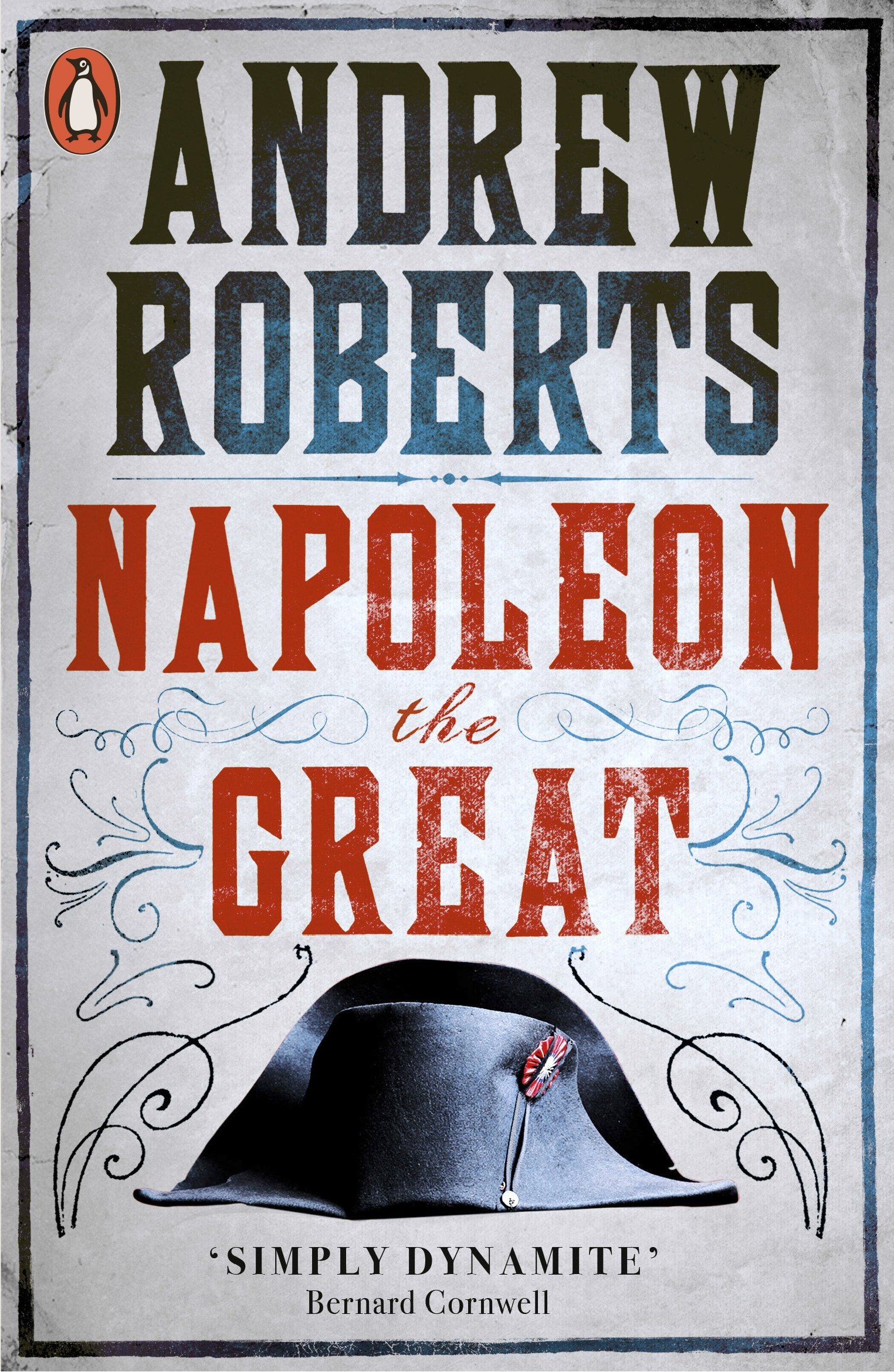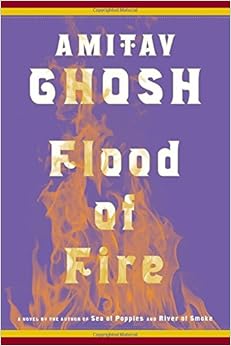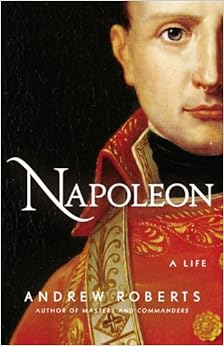I've been alternating among three books.
 |
| The English jacket art is prettier. |
The novel is Flood of Fire (2015), the final volume of Amitav Ghosh's wonderful historical fiction Ibis Trilogy centered on the 19th century opium trade and the opium wars, featuring a vast and diverse cast of interesting characters from the UK, India and China -- with a few Americans. Among the reading pleasures of this trilogy is that recurring characters from one volume to another, move in a novel manner from supporting roles to primary ones, and vice versa, which allows for fresh takes on shared experiences. One of the Americans, Zachery Reid, is this time a primary character, a skilled seaman, from Baltimore's internationally famed shipyards, where he learned his shipbuilding and woodworking skills. He also happens to be so lightskinned that away from his birthland, he is classified as white.
 |
The biography is the Thatcherite, Andrew Roberts 's Napoleon: A Life -- (2014) -- the English publication is titled Napoleon the Great.
The history is the Blackstone audible edition of Taj Mahal: Passion and Genius At the Heart of the Moghul Empire (2007) -- the U.S. edition of this work also has a different title, Taj Mahal: A Love Affair At the Heart of the Moghul Empire by Diana and Daniel Preston. Neither of these titles accurately reflects the matters that are the book's primary focus, which is the history of the Timur family descended from Tamerlane that established the Moghuls' Indian empire, and their heartless internecine battles to own the empire. However, those stories cannot and are not told by the Prestons without including love stories, particularly that of Shāhjahān's stepmother, the powerful Nur, who ruled his father, Jahāngīr, and who wished to rule the empire as well, and Shāhjahān's love for his wife, Nur's niece, Arjūmand Bānū Begum. This is the story of the Red Fort, Persia and Afghanistan even more than that of the Taj Mahal. With those materials how can it be less than fascinating, and fascinating it is. Among the things this book has taught me so far is that Charles the Second received Mumbai as part of his marriage settlement for marrying the Portuguese princess, Catherine de Branganza.
An additional interest for me is that the book is co-written by a husband and wife.
Talk about the vast reach and interconnections of the British Empire. The British Empire central in all these books, in Europe and Asia.
That Thatcherite, Andrew Roberts, is in favor of empires, is a given . . . .




No comments:
Post a Comment